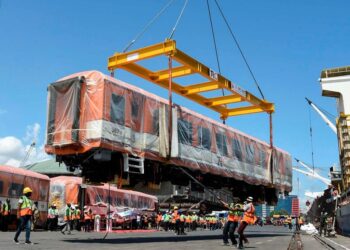
Stakeholders in the oil and gas industry say total deregulation of the downstream sector will unlock huge private investment potential in the sector.
The stakeholders said that deregulation would stimulate sustainable growth in the oil sector.
They expressed worry over the huge amount of money annually spent by the Federal Government on subsidy payment, saying such sum could be used to develop other sectors of the economy.
They urged the Federal Government to liberalise the downstream sector to attract investors and boost the country’s economy.
The Minster of State, Petroleum Resources, Dr Ibe Kachikwu, had said that subsidy on Premium Motor Spirit (PMS), otherwise known as petrol, stood at over N1.4 trillion.
The stakeholders said that became imperative for government to embark on total deregulation of the downstream sector to attract investors, while the country saved funds.
Mr Muda Yusuf, the Director-General, Lagos State Chambers of Commerce and Industry (LCCI), said the biggest burden on the economy might be regarded as the petroleum subsidy regime.
Yusuf said that government should encourage private sector players to take over the downstream sector of the petroleum business.
He said: “When this is done, most of the challenges we see as regard subsidy, refineries and others will be adequately addressed.
“The government should only play the regulator and not an operational role.
“Government has no business refining petroleum products, retailing or distributing fuel as well as the marketing of these products.
“We cannot continue to carry that kind of burden in the oil sector.’’
Yusuf also said that subsidy remained a big hole in the finances of government and puts pressure on the foreign exchange market.
According to him, it has downward impact on the foreign reserves, just as it exerts immense stress on the nation’s treasury.
He said one of the critical elements of the oil and gas sector reform, particularly the downstream sector, was the complete deregulation of the sector.
An energy expert, Mr Felix Andrew, said that continuous payment of subsidy would not be sustainable and urged government to liberalise the market and encourage “free entry, free exit’ to attract investors in the sector.
Andrew, who is also the Executive Director, Blue-Sea Energy Ltd., said that currently, Nigeria spent about N1.7’trillion on fuel subsidy annually, while its education and health sector could only access a paltry budget of N300 million and N400 million respectively.
According to him, it is obvious that the fuel subsidy programme is placing a huge financial burden on the nation’s resources.
“Hence, there is no better time to deregulate as this initiative is an enabler in freeing up scarce resources.
“This is to address the concerns clearly expressed by the citizens for which political leadership is unable to find the resources to satisfy.
“It includes providing adequate funding to support the health and education sector, improve infrastructure and better working conditions for the average Nigerian worker,” he said.
The expert said fuel subsidy had brought about industry degradation such as poor maintenance of and inadequate investment in facilities (jetties, depots and stations) and infrastructure (roads, bridges, rail & pipelines).
Others, he said, were, human resources, transportation (vessels and trucks), existing refineries and poorer implementation of health, safety, environment and quality matters.
Alhaji Debo Ahmed, Western Zone Chairman of the Independent Petroleum Marketers Association of Nigeria (IPMAN), urged government to liberalise and enforce total deregulation of the downstream sector to boost the country’s economic growth.
Ahmed said that deregulation remained the best option to move the economy forward, adding that full deregulation would bring investments to the sector.
He said that only deregulation would encourage the establishment of private refineries in the country.
According to him, government should summon the courage to fully deregulate and remove subsidy totally to open the market for investors.
“If government likes, it can introduce gradual removal of subsidy but it should not go beyond six to 18 months period.
“If fully deregulated with rules, you will have the serious investors coming in to invest adequately,’’ he said.
According to him, deregulation is the answer and the government must talk to the people and let them understand the advantages.
Also, the President, National Association of Liquefied Petroleum Gas Marketers, Mr Nosa Ogieva-Okunbor, said only full deregulation could bring the much needed investment to the sector.
Ogieva-Okunbor, said that full deregulation remained the best option to attract investors for sector development, against the backdrop of huge amounts spent on subsidy.
He said full liberalisation and deregulation of Nigeria’s downstream oil sector would remove all hindrances and bottlenecks that had been discouraging improvement of private investment and market competition.
The president, who also lauded the commitment of government to repositioning the sector, said the fact that Nigeria was one of the lowest LPG consuming countries in Africa remained pathetic.
According to him, government should fully deregulate the downstream sector to attract investors.
“We need full deregulation of the downstream sector. We do not need partial deregulation.
“Market prices in Nigeria and international market prices are outside the control of our local policy.
“The current international price and imported petroleum products pricing template do not conform to the physical landing cost on the products when interpolated with the government’s template,” he added.
Nigeria spent N2.582 trillion on fuel importation in nine months, from January to September 2018, rising by 12.9 per cent from N2.289 trillion recorded in the first three quarters of 2017.
The amount spent on fuel import in the nine-month period is 28.3 per cent of Nigeria’s N9.12 trillion budget for the 2018 fiscal year and 36 per cent of the N7.17 trillion proposed expenditure in the budget.
This came as the Nigerian National Petroleum Corporation (NNPC), said that the government had paid petroleum products marketers N236 billion, being first tranche of the outstanding fuel subsidy claims owed the marketers.
According to data obtained from the National Bureau of Statistics (NBS), Foreign Trade Statistics for the Third Quarter of 2018, Nigeria’s fuel import stood at N845.12 billion, N720.4 billion for the first and second quarters of 2018 respectively.
However, in the third quarter of 2018, the report noted that fuel import rose sharply by 41.03 per cent from N720.4 billion recorded in the second quarter to N1.016 trillion in the third quarter of 2018.













